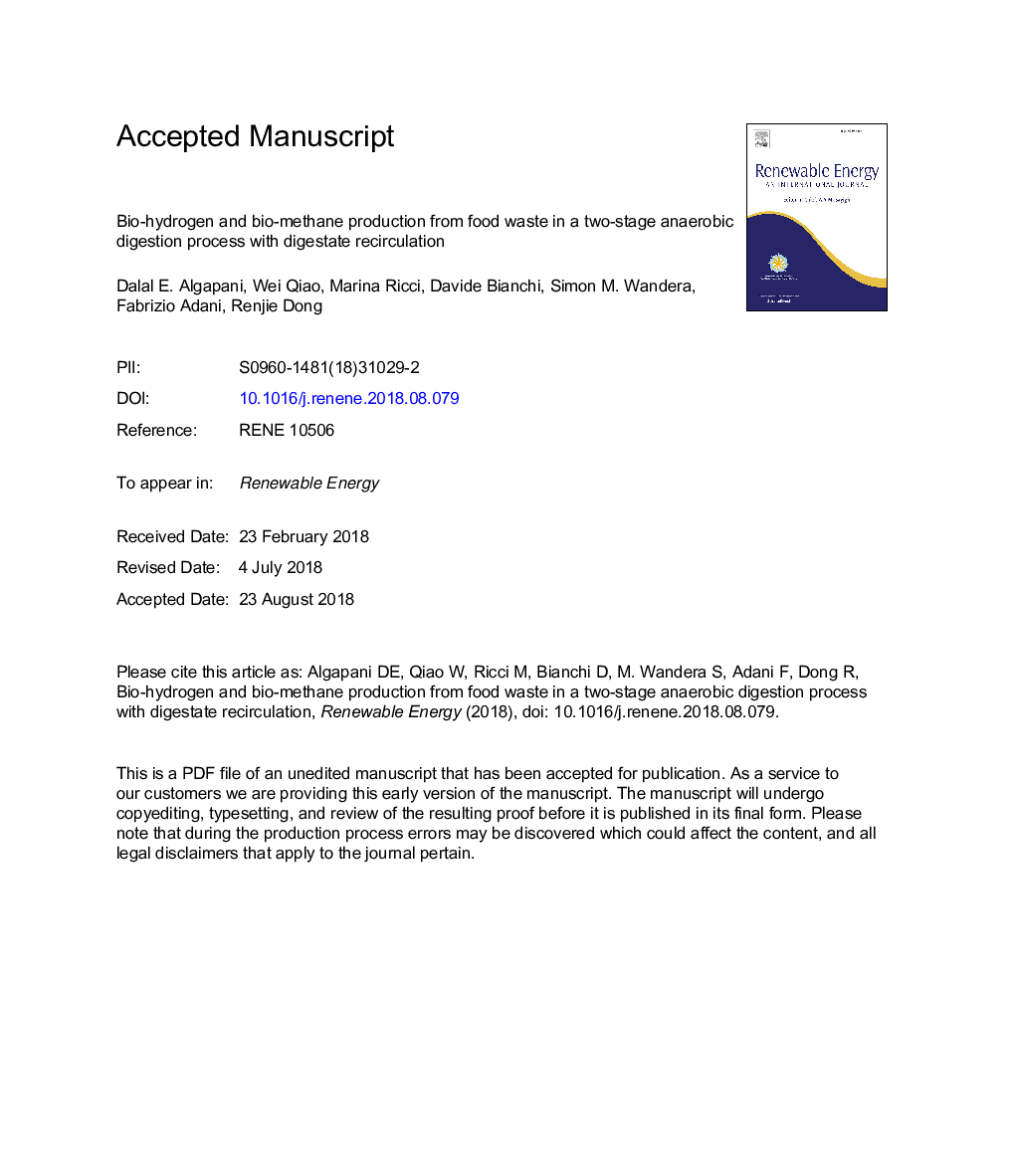| Article ID | Journal | Published Year | Pages | File Type |
|---|---|---|---|---|
| 11001231 | Renewable Energy | 2019 | 24 Pages |
Abstract
Bio-H2 and bio-CH4 production from food waste in a two-stage temperature phased system were investigated to determine the effects of digestate recirculation on energy efficiency and process stability. Different recirculation ratios (RR), i.e. 0.3, 0.5, and 1.0, were tested. Maximum H2 production of 3â¯L-H2 Lâ1dâ1 and yield of 135â¯L-H2 kgâ1VSin were achieved for an RR of 0.3â¯at HRT 5â¯d and OLR of 18â¯kg-VS mâ³dâ1. The RR of 0.3 was also the best for producing CH4 and gave results of 2.9â¯L-CH4 Lâ1 dâ1, i.e. 510 L-CH4 kgâ1VSin at HRT 9â¯d and OLR of 5.7â¯kg-VS mâ³ dâ1. The energy recovered from the recirculation process increased the H2 production by 8% and decreased the CH4 production by 3%; the total energy production did not change. Digestate recirculation in comparison with a no-recirculation system reduced the need for alkali addition to maintain pH in the H2-reactor by 54%.
Related Topics
Physical Sciences and Engineering
Energy
Renewable Energy, Sustainability and the Environment
Authors
Dalal E. Algapani, Wei Qiao, Marina Ricci, Davide Bianchi, Simon M. Wandera, Fabrizio Adani, Renjie Dong,
